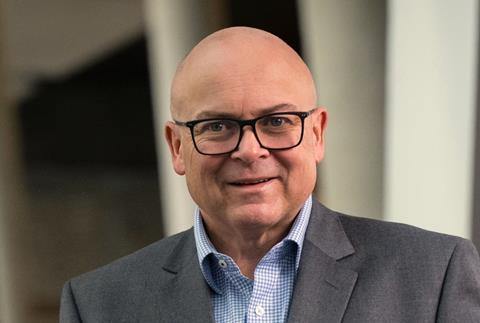APCO works in collaboration with sustainability leaders in government, industry, community groups and academia to meet National Packaging Targets
The International Fresh Produce Association Australia and New Zealand (IFPA ANZ) has become a signatory to the Australian Packaging Covenant Organisation (APCO), underlining its commitment to supporting the fresh produce industry’s journey to more sustainable packaging practices.

Outgoing IFPA ANZ managing director, Ben Hoodless said packaging was among the hot topics facing the fresh produce and floral industry, especially around the future of Price Look-Up code (PLU) produce stickers and returnable packaging.
Under its industry association membership, IFPA ANZ is entitled to be part of APCO’s problem-solving collective, working in collaboration with local and global sustainability leaders in government, industry, community groups and academia and joining the movement as it transitions to the National Packaging Targets.
The targets include: 100 per cent of packaging to be reusable, recyclable or compostable; 70 per cent of plastic packaging to be recycled or composted; 50 per cent average recycled content across all packaging; and a phase-out of problematic and unnecessary single-use plastic packaging.
“As an industry, we are failing APCO’s targets – the systems, schemes and infrastructure are not there to support supply chain member efforts. A more realistic target is 2030. We need to see more investment from governments into establishing recycling infrastructure if we are to achieve any real traction in this space by 2030,” Hoodless said.
“We can learn from a lot that is happening in other parts of the world such as Canada and Europe. In the US – particularly California – consumers’ environmental and wellness concerns are driving the debate and instigating legislative changes.
“In Australia to date, packaging regulations have largely been state-based which can cause significant issues for growers and packers who supply across borders (where different regulations apply). APCO works closely with the federal government to make members’ voices heard at a national level. IFPA ANZ supports a national approach which aims to reduce complexity, inefficiency and cost to the supply chain.”
Earlier this year in a submission to the South Australian government, IFPA ANZ announced its support of a national approach to banning plastic non-compostable PLU stickers and called for compostable adhesive to be excluded from South Australia’s proposed 2025 ban until growers, packers and retailers had more time to phase in approved alternatives.
“Recently at IFPA’s Global Produce and Floral Show in Atlanta, we met a supplier who had developed a PLU sticker with compostable adhesive that meets US regulations and that technology is emerging here. We’re also seeing the emergence of new technologies such as natural branding of fruit through lasers which looks very interesting,” he said.
APCO is a not-for-profit organisation which envisages developing a collaborative packaging value chain to keep packaging materials out of landfill and retain the maximum value of the materials, energy and labour within the economy.
“We are delighted to welcome the IFPA ANZ as new members of APCO. Representing companies across the global fresh produce and floral supply chain, the IFPA plays a key role in fostering a vibrant community of industry professionals in Australia and New Zealand,” APCO CEO Chris Foley said.
“The fresh produce and floral packaging sector face challenges in finding circular packaging that preserves product freshness due to the short lifespan of perishable goods. APCO is excited to work more closely with IFPA to help drive innovation in sustainable packaging solutions, support industry-wide collaboration, and ensure that the sector’s unique needs are met in line with the National Packaging Targets and beyond.”
IFPA ANZ member Chep is also an APCO signatory. For more than 60 years, it has been the leading global provider of safe and sustainable products such as pallets and containers to the fresh produce supply chain.
Chep Australia general manager, Renee Holbrook congratulated IFPA ANZ on becoming a member of APCO.
“We are excited to extend our working relationship with IFPA ANZ into the APCO scope as IFPA continues to advocate and enable more sustainable packaging outcomes for the floral and fresh produce supply chains. Its membership will also provide IFPA members greater connection opportunities into APCO for better industry outcomes,” Holbrook said.
“Chep, as a member of both organisations, sees a natural fit between the two industry bodies that will achieve greater understanding of packaging issues and opportunities, impending regulatory changes and global best practices as a result.”
Hoodless said joining APCO was in line with IFPA ANZ’s broader global sustainability focus.
“It’s about what the industry could look like in 2030 and how IFPA ANZ can align with and support members’ objectives for a more sustainable industry,” he said.
IFPA ANZ will run a series of targeted webinars for members in the new year, outlining how it will support members as they transition towards a more sustainable industry in a timely fashion that will not place any extra burden, complexity or cost to stakeholders.



